
Expert Revision Hip Replacement Surgery
Restoring Function and Relieving Pain After Failed
Hip Implants.
Understanding Revision Hip Replacement Surgery

Revision hip replacement is a specialized procedure performed when an existing hip replacement surgery fails, implant loosens, wears out or causes complications such as infections. Compared to primary hip replacement, this surgery is more complex and requires advanced expertise. At Jhansi Orthopaedic Hospital, Dr. Gaurav Gupta provides comprehensive revision care, from diagnosis and surgical planning to recovery and rehabilitation. With modern techniques, bone grafting options, and customized implants, revision surgery restores mobility, relieves pain, and helps patients regain their quality of life safely and effectively.
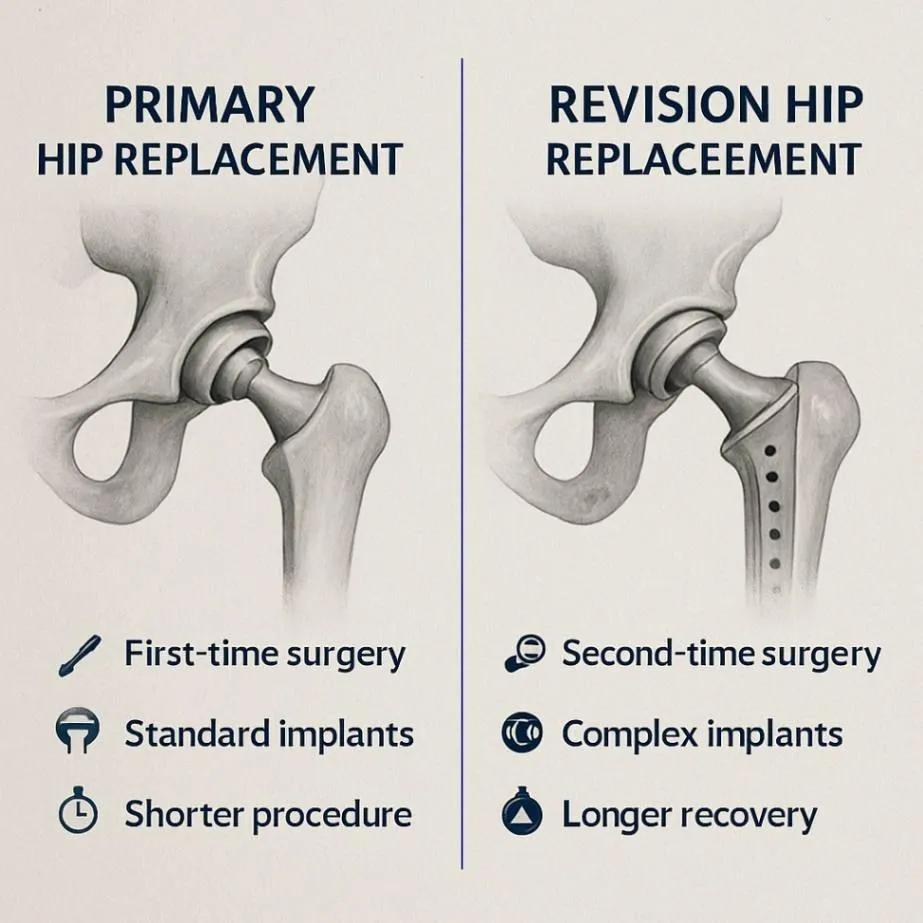
When Revision Hip Replacement is Needed
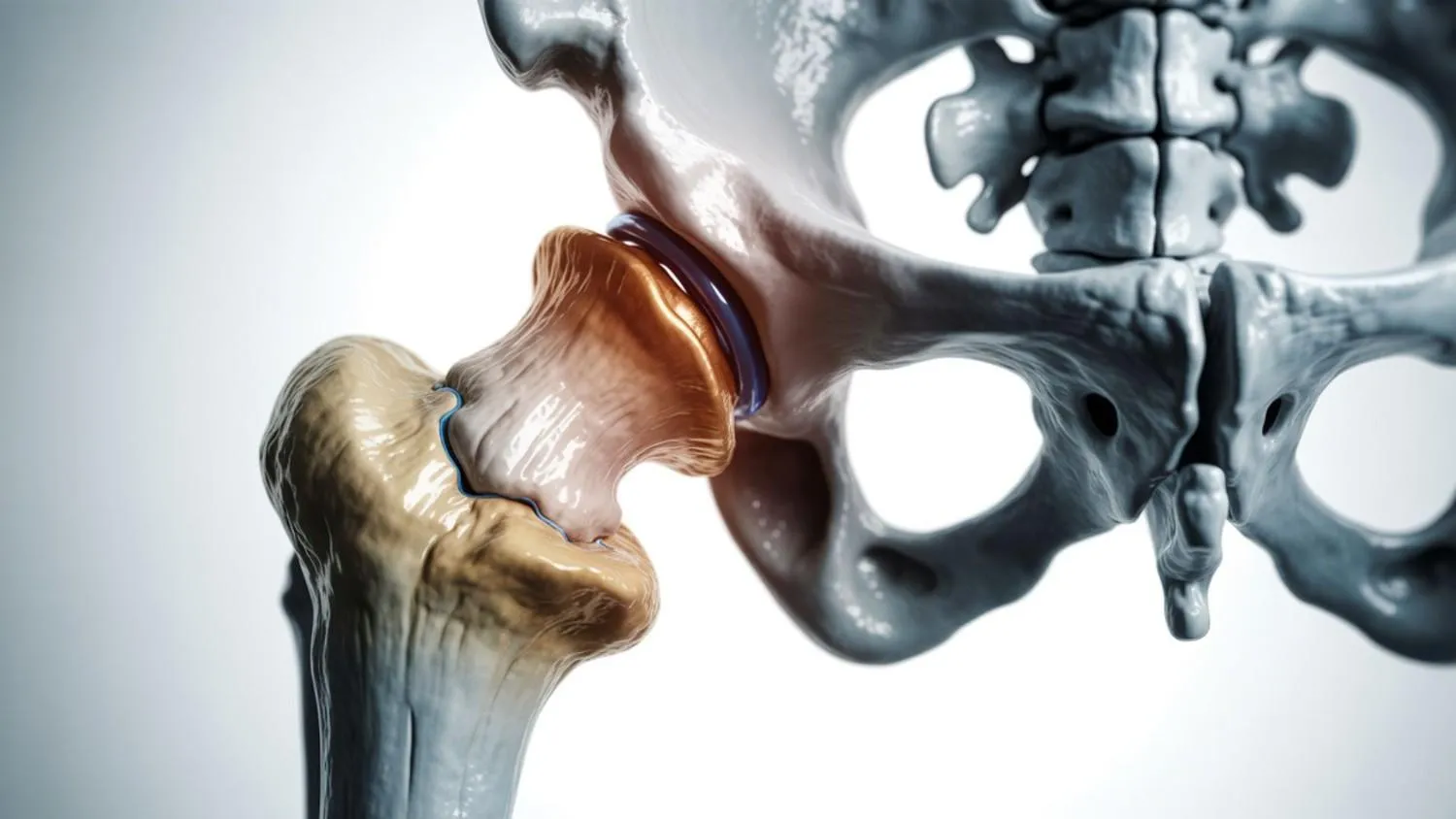
Implant Wear and Loosening Over Time
Loosened implants can cause pain, instability, and reduced hip function, requiring surgical revision.
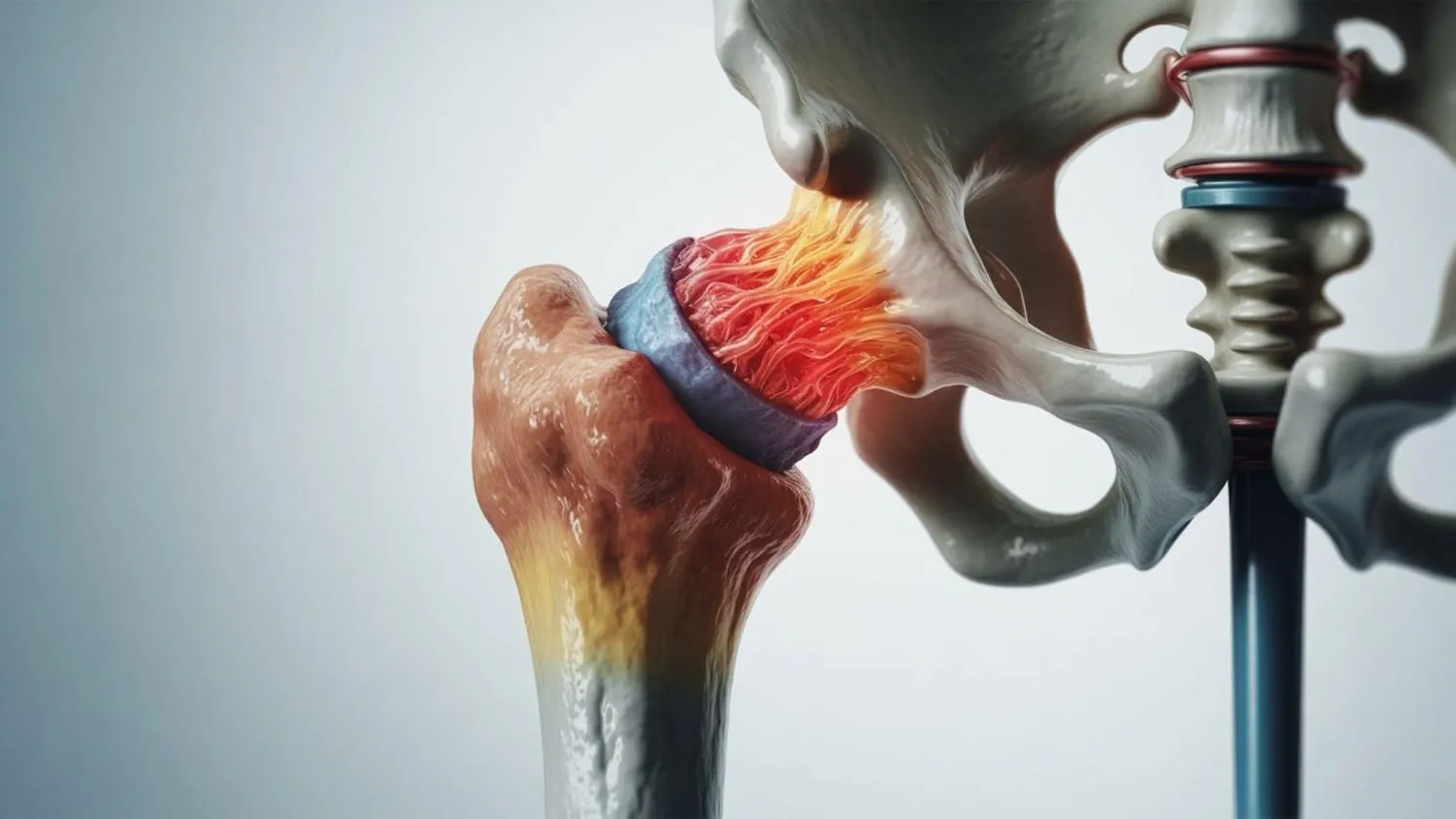
Deep Hip Joint Infection Developing
Severe joint infections may damage tissue and bone, making revision surgery essential for recovery.
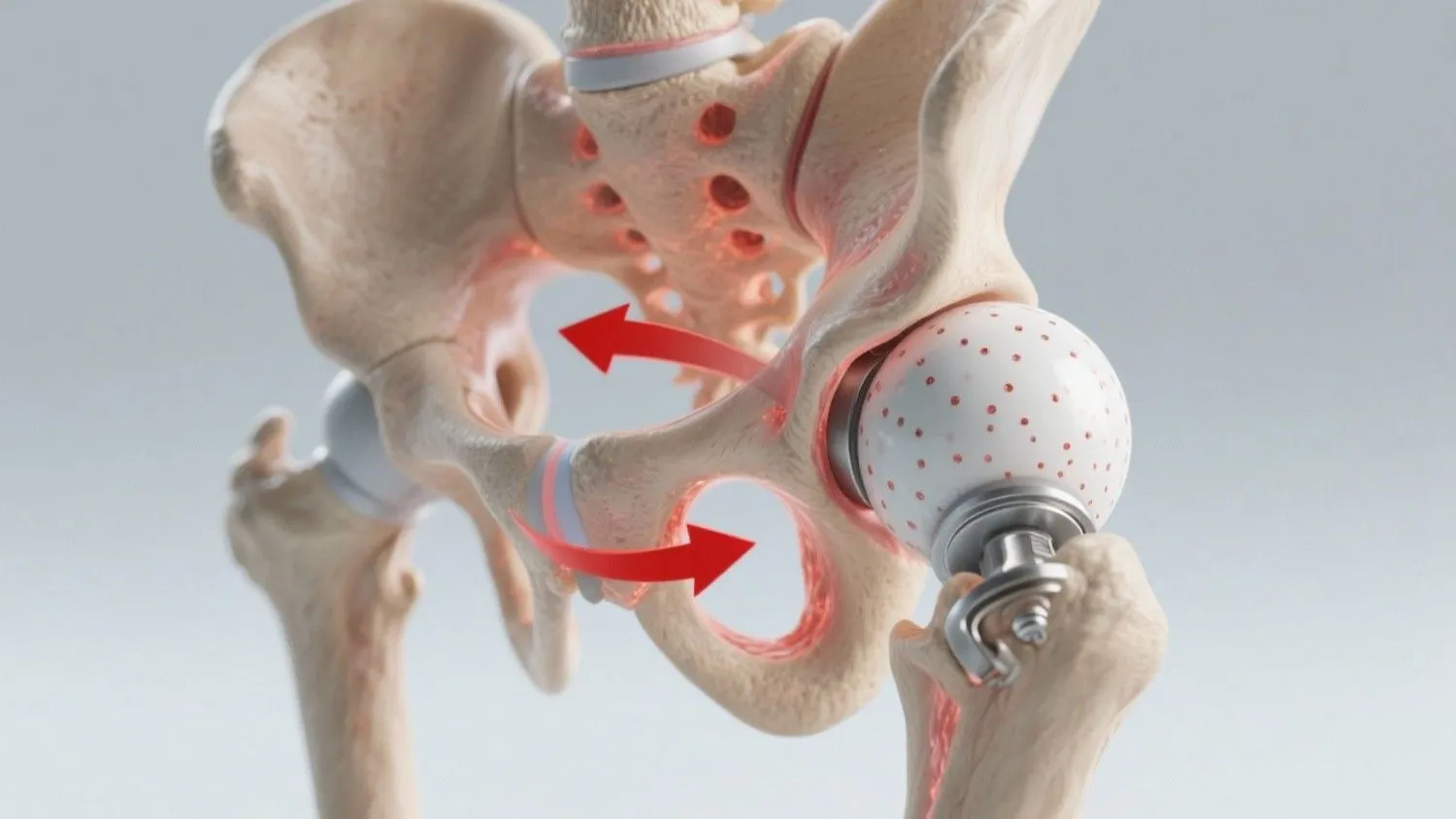
Frequent Hip Dislocations After Surgery
Recurrent dislocations of the artificial joint reduce mobility and require corrective revision surgery.
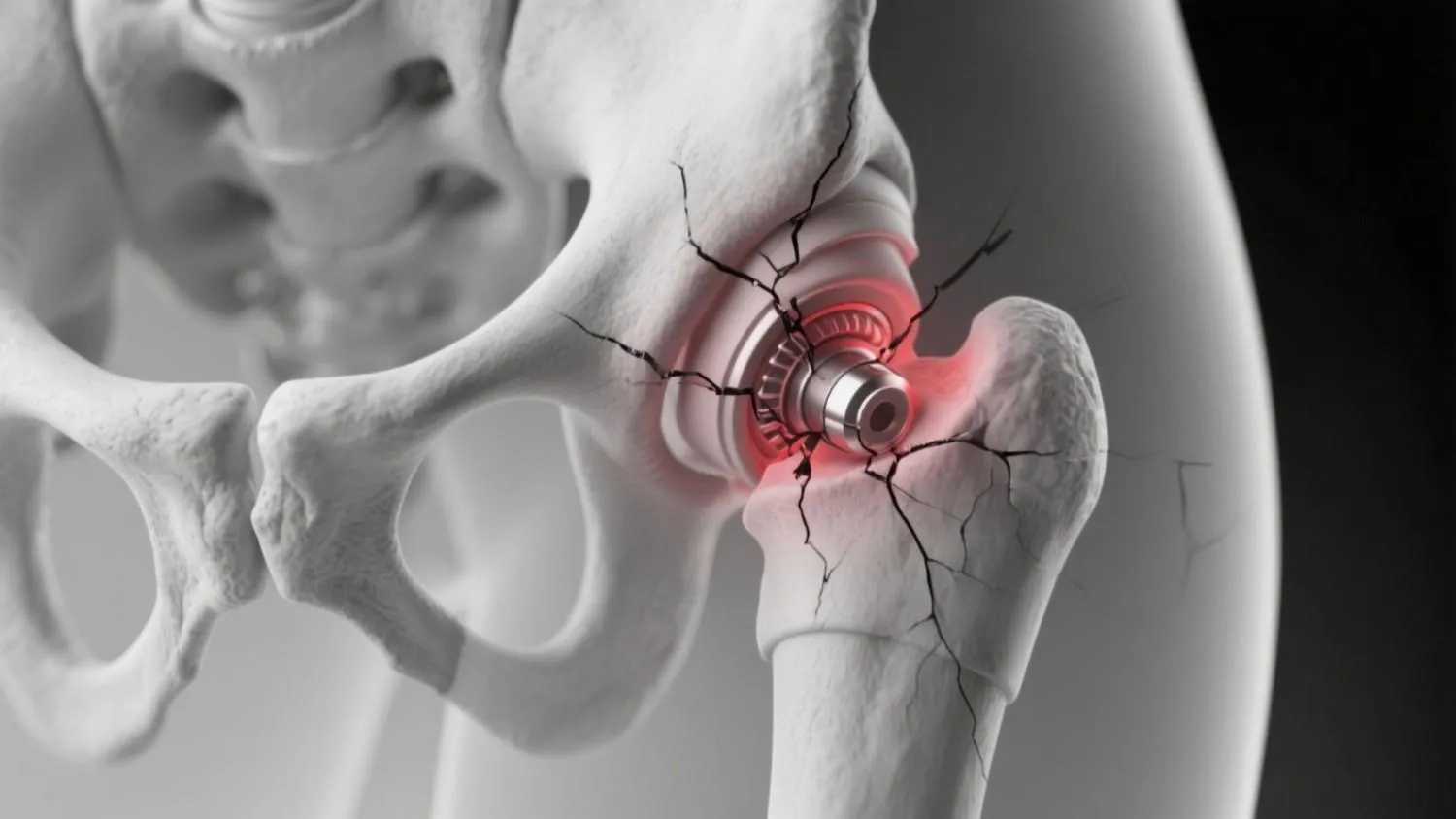
Fractures Around Hip Implant Occurring Unexpectedly
Surrounding bone fractures may occur near implants, often requiring reconstruction with revision surgery.
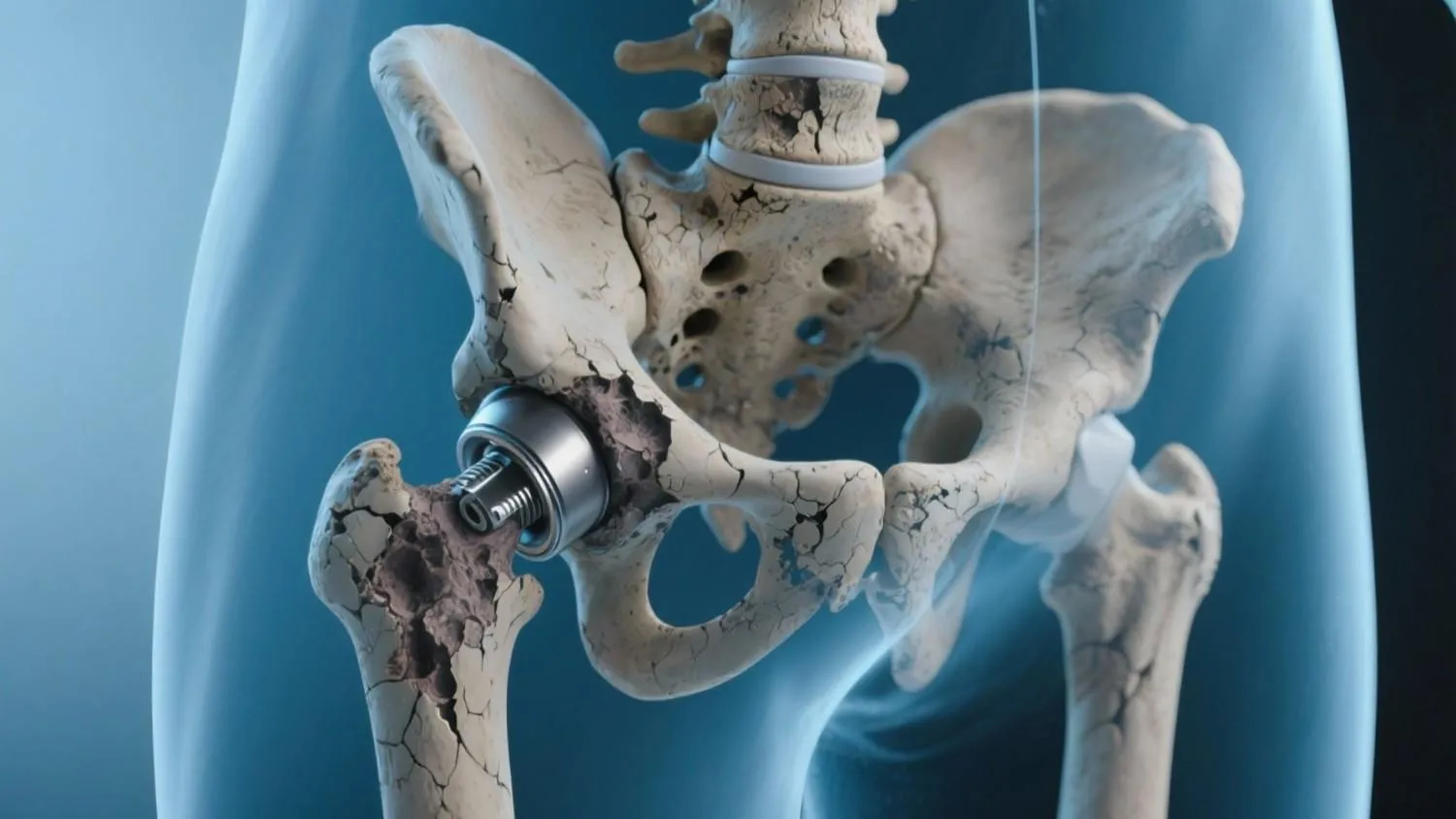
Osteolysis and Bone Loss Around Implant
The body's reaction may cause bone loss near the implant, weakening hip structure.
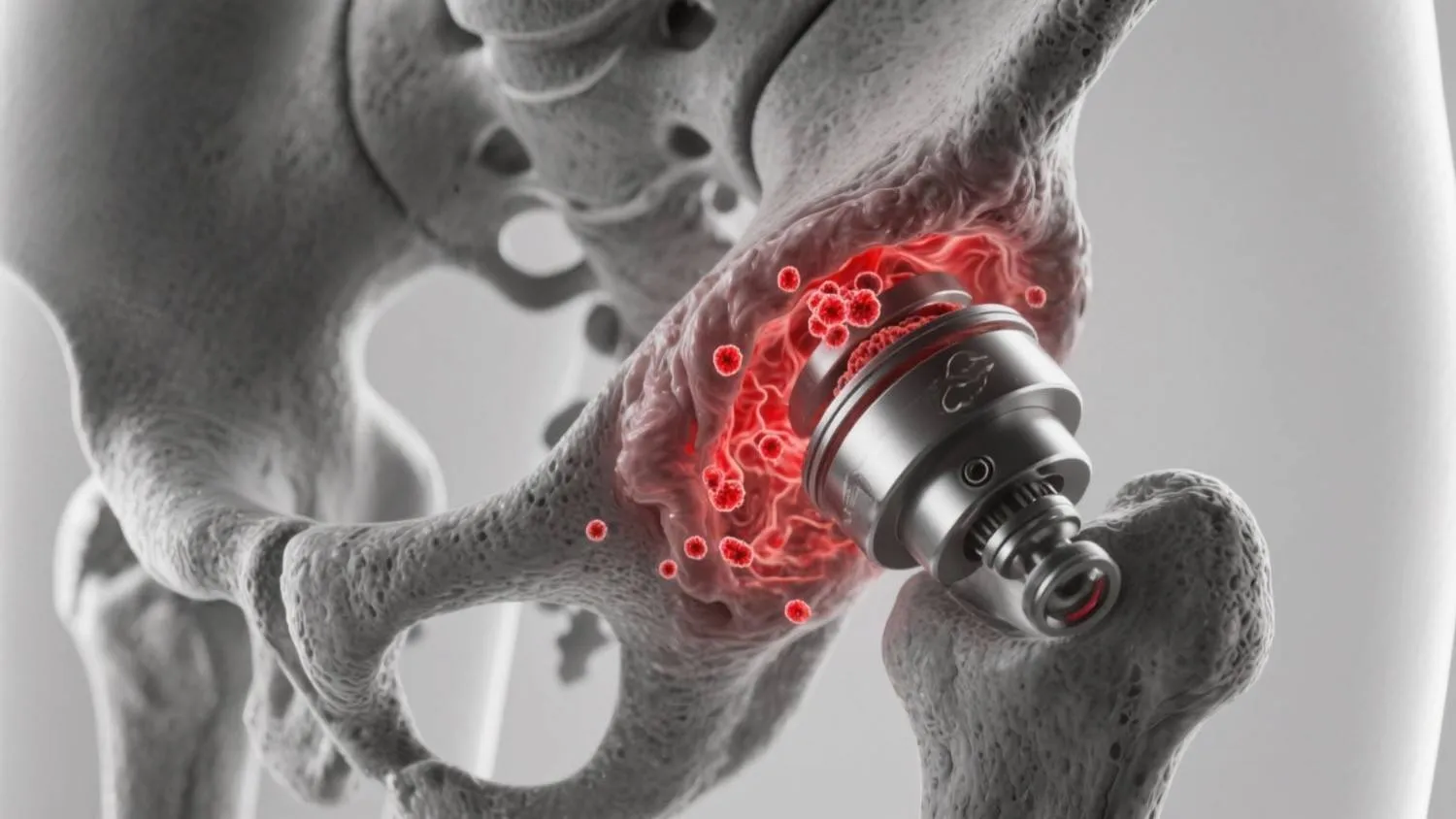
Reaction to Metal Components of Implant
Allergic or inflammatory reactions to implant metals may lead to pain, swelling, and revision needs.
Happy Patients...
Real stories of lasting relief
Treatment Protocols

Comprehensive Diagnostic Imaging Before Surgical Planning
X-rays, CT scans, or MRIs assess implant condition, bone loss, and tissue health, ensuring accurate surgical planning before revision hip replacement.

Complex Implant Removal and Bone Reconstruction Techniques
Old implants are carefully removed; bone grafts rebuild sockets or canals if needed, restoring structural strength for new prosthesis placement.

Advanced Prosthesis Selection for Improved Stability and Function
Larger, specialized implants replace damaged ones, reducing dislocation risk while restoring natural joint movement and stability.

Structured Rehabilitation and Postoperative Care Program
Customized rehabilitation focuses on physiotherapy, wound care, and gradual activity resumption, ensuring safe recovery and restored mobility.
Why Dr. Gaurav Gupta?
Over 20 years of surgical expertise in complex hip and joint replacement cases.
Leading consultant at Jhansi Orthopaedic Hospital, specializing in revision hip replacement procedures.
Skilled in advanced imaging, implant technology, and bone reconstruction techniques.
Provides personalized care plans with a strong focus on recovery and mobility.
Trusted by patients across the region for safe outcomes and long-term relief.
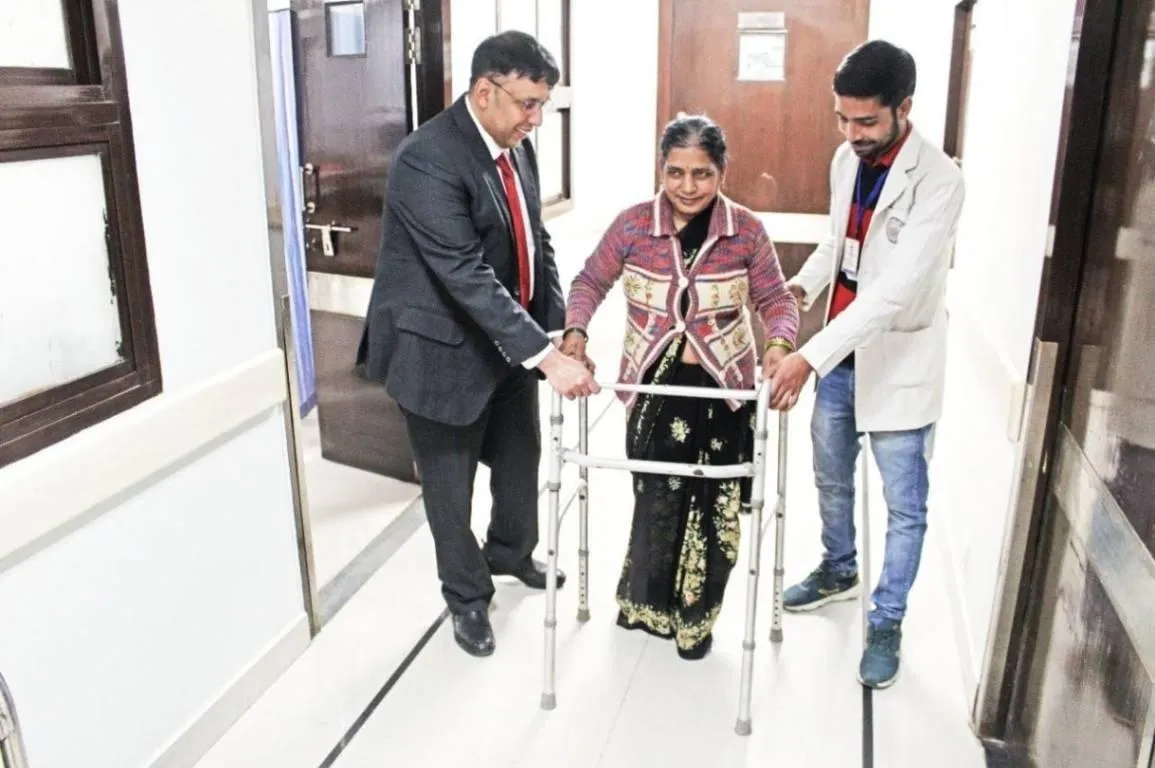
Our Success in Numbers
10%
Over 10% of hip replacements worldwide eventually require revision surgery within 15–20 years.
85%
Revision hip replacement surgery success rates exceed 85% when performed by experienced specialists.
6-12
weeks after revision surgery, patients usually regain walking ability.
90%
Jhansi Orthopaedic Hospital reports 90% patient satisfaction in complex hip revision cases.
Is Revision Hip Replacement Surgery Right for You?...
FAQs with Answers
It is needed when implants loosen, wear out, cause recurrent dislocations, infection, fractures, or severe pain that affects mobility and daily function.
Revision surgery is more complex, involving implant removal, bone reconstruction, and specialized prosthesis placement compared to the simpler primary hip replacement.
Doctors may order X-rays, CT scans, or MRIs to evaluate implant condition, detect bone loss, and plan accurate revision surgery.
Patients usually stay longer than primary surgery, ranging from 5 to 10 days, depending on complications, healing progress, and rehabilitation requirements.
Risks include infection, blood clots, dislocation, nerve injury, or bone fractures. Choosing an experienced surgeon reduces complications and improves recovery outcomes.
Most patients begin walking with assistance in a few days, gradually progressing to independence with physiotherapy over several weeks.
Yes. Recovery is more challenging due to bone loss and implant removal, requiring structured rehabilitation, physiotherapy, and close medical supervision.
Yes. Bone grafts help rebuild sockets or canals damaged by implant wear, ensuring better stability for the new prosthesis.
Modern revision hip implants can last 15 years or more, depending on patient health, activity level, and implant type used.
At Jhansi Orthopaedic Hospital, Dr. Gupta combines advanced surgical expertise, modern implants, and comprehensive rehabilitation to deliver safe, effective outcomes for revision hip patients.



